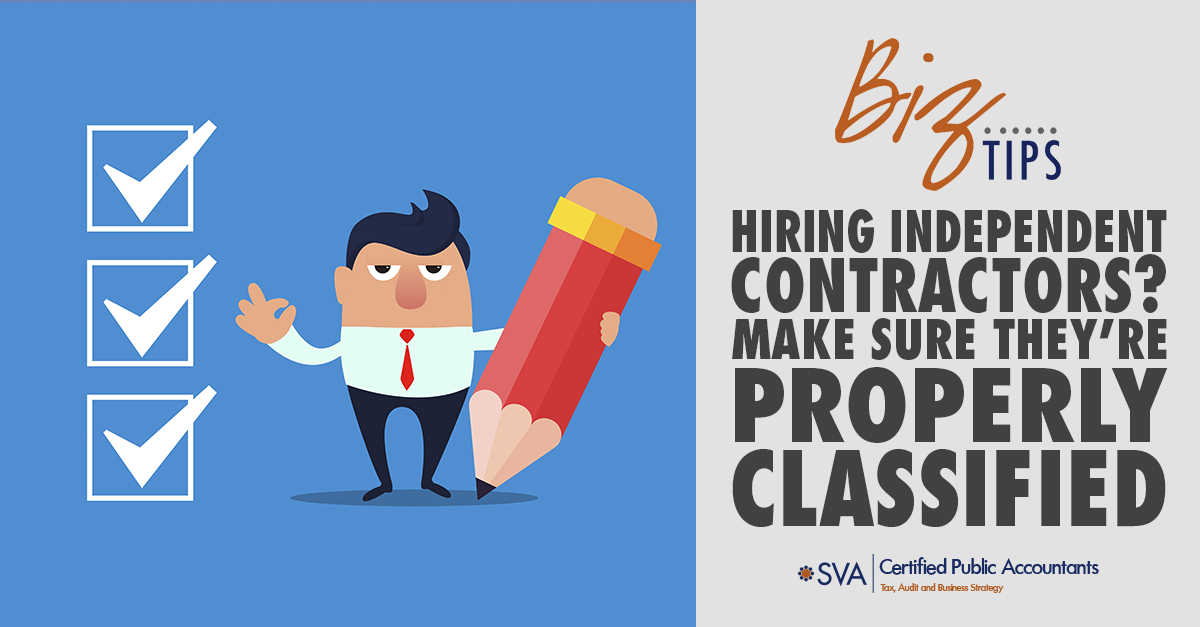As a result of the coronavirus (COVID-19) crisis, your business may be using independent contractors to keep costs low. But you should be careful that these workers are properly classified for federal tax purposes. If the IRS reclassifies them as employees, it can be an expensive mistake.
The question of whether a worker is an independent contractor or an employee for federal income and employment tax purposes is a complex one.
If a worker is an employee, your company must withhold federal income and payroll taxes, pay the employer’s share of FICA taxes on the wages, plus FUTA tax. Often, a business must also provide the worker with the fringe benefits that it makes available to other employees. And there may be state tax obligations as well.
These obligations don’t apply if a worker is an independent contractor. In that case, the business simply sends the contractor a Form 1099-MISC for the year showing the amount paid (if the amount is $600 or more).
No Uniform Definition
Who is an “employee?” Unfortunately, there’s no uniform definition of the term.
The IRS and courts have generally ruled that individuals are employees if the organization they work for has the right to control and direct them in the jobs they’re performing. Otherwise, the individuals are generally independent contractors. But other factors are also taken into account.
Some employers that have misclassified workers as independent contractors may get some relief from employment tax liabilities under Section 530. In general, this protection applies only if an employer:
- Filed all federal returns consistent with its treatment of a worker as a contractor,
- Treated all similarly situated workers as contractors, and
- Had a “reasonable basis” for not treating the worker as an employee. For example, a “reasonable basis” exists if a significant segment of the employer’s industry traditionally treats similar workers as contractors.
Note: Section 530 doesn’t apply to certain types of technical services workers. And some categories of individuals are subject to special rules because of their occupations or identities.
Asking for a Determination
Under certain circumstances, you may want to ask the IRS (on Form SS-8) to rule on whether a worker is an independent contractor or employee. However, be aware that the IRS has a history of classifying workers as employees rather than independent contractors.
Businesses should consult with us before filing Form SS-8 because it may alert the IRS that your business has worker classification issues — and inadvertently trigger an employment tax audit.
It may be better to properly treat a worker as an independent contractor so that the relationship complies with the tax rules.
Be aware that workers who want an official determination of their status can also file Form SS-8. Disgruntled independent contractors may do so because they feel entitled to employee benefits and want to eliminate self-employment tax liabilities.
If a worker files Form SS-8, the IRS will send a letter to the business. It identifies the worker and includes a blank Form SS-8. The business is asked to complete and return the form to the IRS, which will render a classification decision.
Contact us if you receive such a letter or if you’d like to discuss how these complex rules apply to your business. We can help ensure that none of your workers are misclassified.

© 2020

